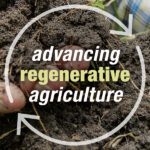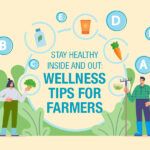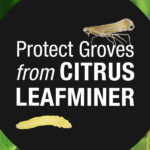Kellogg Co. and Syngenta Unite to Help Rice Growers Reduce Methane Emissions
A new program offers methane-reduction assistance to some rice growers in Louisiana and Mississippi.

Q. What are the details of Kellogg’s InGrained™ program?
A. Meryl Kennedy , CEO of 4Sisters Rice and Kennedy Rice Mill: Kellogg’s InGrained™ program will invest $2 million over five years to provide farmers in my area — Louisiana and the Lower Mississippi River basin, what we call the Delta — with training in irrigation management, nutrient management and soil health. Kellogg is providing farmers with a financial incentive for every ton of greenhouse gases (GHG) their new practices help reduce. But Kellogg’s InGrained™ is more than that, it’s a collaboration between Syngenta, Kellogg Co., Regrow Ag and Kennedy Rice Mill to bring this program to life.
A. Stacey Shaw, senior sustainability lead at Syngenta: Through the program, Kellogg wanted to partner with growers to help them adopt new practices for GHG reduction, especially methane, but also to take off a little bit of the sting of implementing a new practice. For the program’s 2022 pilot year, the company offered growers $20 per ton of GHG reduction — plus agronomic support, GHG quantification, and other resources at no additional cost to farmers — to remove some of the risk of trying something new on the farm. Kellogg’s intention is to help them get started, knowing that positive changes on the farm can be still risky in the beginning.
Q. What was the impetus for developing a methane reduction program for rice specifically?
A. Shaw: Rice is a major contributor to methane emissions and that makes it an easy target1. Opportunities and methods that reduce methane also have other positive effects such as water reduction. Not very many people have adopted methane reduction yet, but it is very doable.
A. Kennedy: Over half of the world’s population relies on rice as a primary source of nourishment2. Also, this is a really important grain for Kellogg. They rely on rice for their iconic brands like Rice Krispies® and Special K® cereals. Many of these rice products and these varieties come from the Mississippi Delta. So, when we thought about how we can make a really big difference specifically for rice production, we thought about how to reduce methane.
Q. Why is methane reduction an important sustainability issue?
A. Kennedy: The impacts of climate change affect us all. But these impacts are of particular concern to farmers, like me, who grow crops to produce the food we eat. Rice production is responsible for an estimated 12% of the total global methane emissions, and methane is a GHG that’s 20 times more potent than carbon dioxide2. As rice farmers and stewards of the land, it’s our responsibility to address these concerns.
A. Shaw: Methane is one of the bigger contributors to global GHG emissions. Methane with nitrous oxide and other emissions contribute to the greenhouse gas issue.
Q. What are the desired results from Kellogg’s InGrained™? How does it help growers — who are already focused on land stewardship?
A. Shaw: The desired result is the adoption of methane reduction practices and reduction of emissions. Kellogg also wants the program to be scalable, ideally across more of their rice draw area. But before spreading the program, we all have to make sure that it works as intended and that farmers see value in it. By piloting the program this crop year with Kennedy, a trusted Kellogg supplier and very large and prominent grower in Mer Rouge, Louisiana, Kellogg hopes to show other growers in that area that they can be successful in reducing methane by implementing these practices. Some rice growers are already doing a lot of the methane-reduction practices that we’re promoting. However, adoption has been slow and many growers only do it on parts of their farms. So, this might be an incentive to them to add additional acres and adopt more practices.
A. Kennedy: From Kellogg’s perspective, the goal would be to help educate and train farmers on how to reduce greenhouse gas emissions. At Kennedy, a vertically integrated agricultural business, we take rice from the farm to the finished food. So, we feel like we’re stewards of the land; this is who we are, and this is part of what we do already. We’re being asked, as farmers, to focus on so many things: soil erosion, reducing chemicals and fertilizers, conserving water. However, reducing methane gas is particularly important for rice. It can truly help create a greener supply chain from seed to package, and so that, to me, is the real benefit from the farmer perspective.
2 https://www.epa.gov/ghgemissions/understanding-global-warming-potentials
3 Min Read
- The Kellogg’s InGrained™ program helps reduce risk for growers who trial sustainability methods.
- Kellogg’s InGrained™ helps growers expand sustainability practices already in place on their farms.























